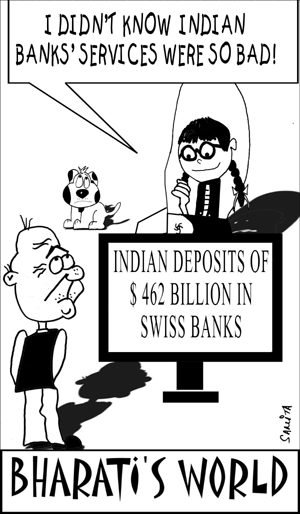For over six decades since independence, Karnataka’s 218 private independent K-12 schools including top-ranked vintage institutions such as Bishop Cotton Boys (estb. 1865) and St. Joseph’s Boys High (estb. 1858) schools among others, have been undisturbed by the crazy patchwork of experiments in education — imposition of Kannada as the medium of instruction in classes 1-V; curriculum interventions; tuition fees regulation; affirmative action quotas etc — by virtue of being affiliated with the pan-India Council of Indian School Certificate Examination (CISCE) or Central Board of Secondary Education (CBSE) examination boards. But now their autonomy is in danger.
On January 10, the Karnataka high court ruled that the 1998 (Act 8) amendment to s.1 (iii-a) of the Karnataka Education Act, 1983 (KEA) which exempts CISCE and CBSE-affiliated schools from the purview of the Act is unconst-itutional and ultravires. Hearing a clutch of writ petitions filed by parents’ associations (WP No. 34192/2009/WP No. 15296/2009) against tuition fee increase notices issued by some of the city’s prestigious CBSE/CISCE schools, Justice H.N. Nagamohan Das of the Karnataka high court ruled that “…the differentiation of private institutions affiliated to state syllabus and ICSE/CBSE syllabus has no rational nexus. Therefore the impugned insertion of s.1(iii-a) in the Education Act violates Article 14 of the Constitution of India”.
 Specifically, Justice Das quashed fee-hike circulars issued by the city’s Air Force, Bishop Cotton Girls and Parachute Regiment schools giving notice of 25-30 percent higher tuition fees for the academic year beginning in June.
Specifically, Justice Das quashed fee-hike circulars issued by the city’s Air Force, Bishop Cotton Girls and Parachute Regiment schools giving notice of 25-30 percent higher tuition fees for the academic year beginning in June.
Unsurprisingly, petitioner parents’ associations which challenged the circulars are delighted with the verdict. “The city’s CBSE and CISCE schools have been arbitrarily raising tuition fees every year. We have been fighting to check these fee hikes and are happy that the high court has ruled in our favour. The state government should enact a law to formulate a uniform fees structure for all private schools,” says Ashok Kumar Adiga, secretary of the Bangalore School Parents’ Association.
On the other hand, managements of the garden city’s top-ranked private independent schools, which have earned global reputations for the high quality K-12 education they provide, are dismayed by the verdict of the single judge bench of the high court. Comments a principal of one of the defendant schools who requested anonymity: “Excellent teachers, labs, computers, and sports facilities cost money and we formulate our fees structure factoring in such expenditure. Parents need to understand that at government-prescribed fees, they will get government school education. By inviting government intervention in tuition fees, parents have unwittingly allowed the state government to interfere with the autonomy of private schools. This is dangerous for the future of K-12 education in the country.”
Nevertheless private school managements take heart from the awareness that Justice Nagamohan Das’ verdict is at odds with judgements of high courts in other states of the Union. Last year the Bombay and Madras high courts struck down government-appointed committees to determine the tuition fees of private unaided schools in Maharashtra and Tamil Nadu as unconstitutional and unwarranted interference with unaided independent schools, which have a fundamental right to “administer” themselves, regulate their admission processes and levy tuition fees subject to their being merit-based and reason-able, as ruled by the Supreme Court in the TMA Pai Foundation (2002) and P.A. Inamdar (2005) cases.
Meanwhile, emboldened by the high court judgement which brings CBSE/CISCE schools under the purview of KEA, 1983, the state government has gone into overdrive. It has modified its rules for granting the all-important no-objection-certificate (NOC) to greenfield schools applying for CBSE/CISCE affiliation. Under the new rules, NOCs will be issued subject to applicants giving undertakings to the state government that admission into pre-primary classes will be made only in April; all tuition fee revisions will be made after consultation with parents; and that they will adhere to the state’s language policy (the medium of instruction in classes I-V should be Kannada or mother tongue, and Kannada should compulsorily be taught as a subject). These new shackles imposed upon edupreneurs by the state government are bound to worsen the demand-supply imbalance of high quality CISCE and CBSE primary and secondary schools — the first choice of aspirational middle class parents.
However the managements of Karnataka’s CBSE/CISCE schools, now banded under MICSA (Managements of Independent CBSE Schools Association), Association of Schools for the Indian School Certificate (Karnataka), and Management Association of Schools, are all set to challenge the high court’s verdict. Meanwhile, parents need to go back to school, because they quite obviously haven’t learnt the lessons of government intervention in education.
Swati Roy (Bangalore)